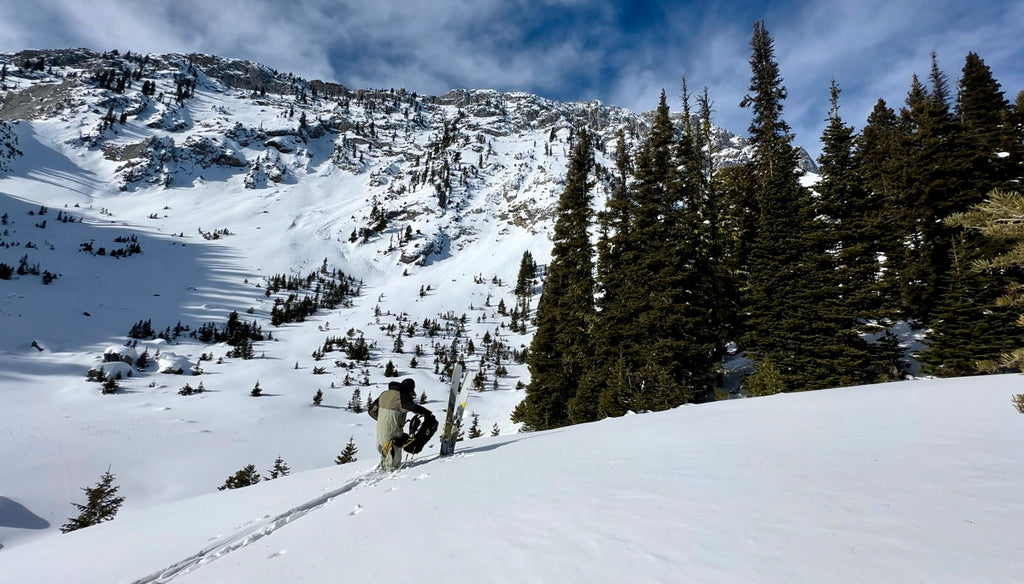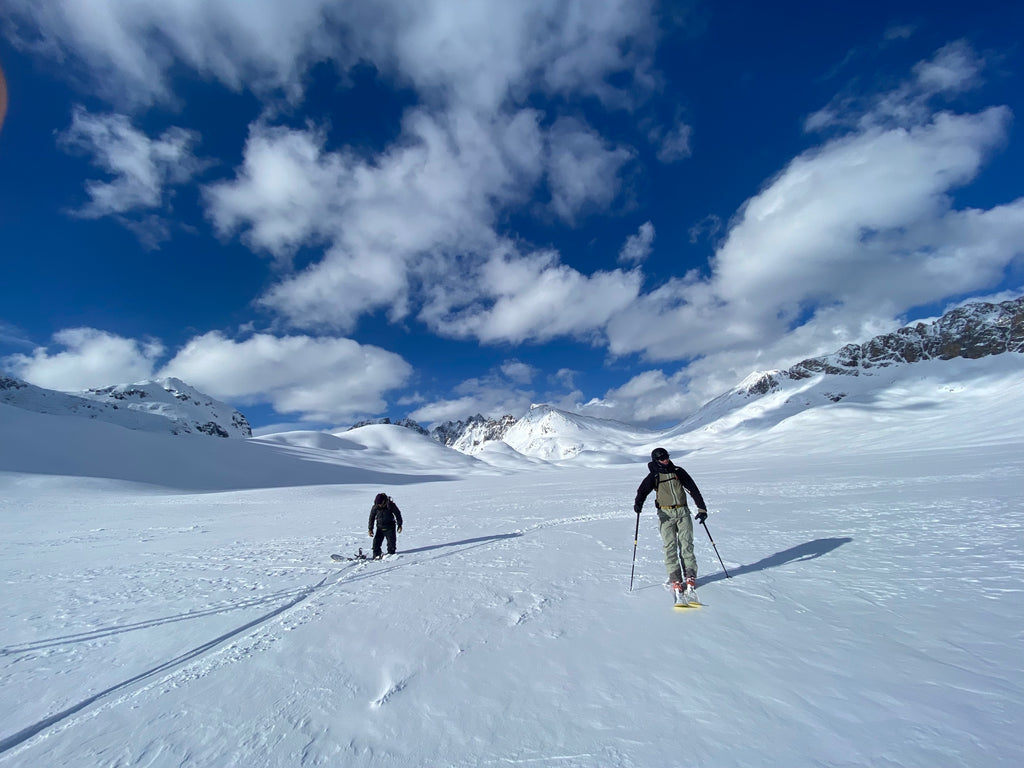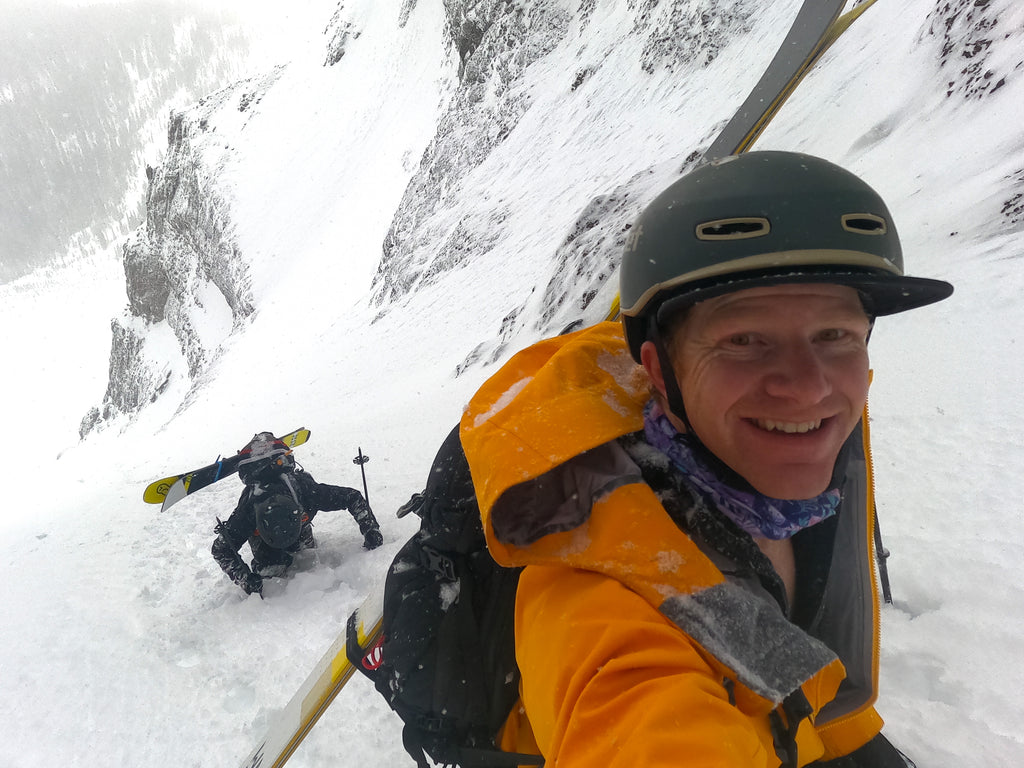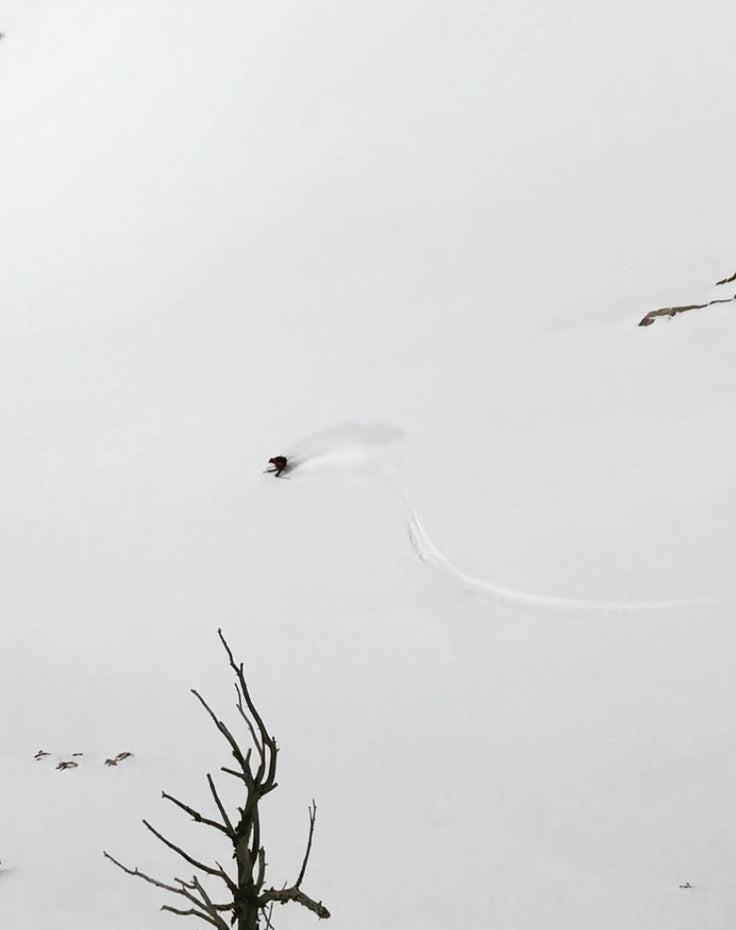Skintrack Pondering: Recreational Revolution
By Tyler "Shep" Miller, FOW

Joy amongst the meadows. Bridger Range, MT. FOW: Tyler "Shep" Miller // Photo: Skyler Drift
During a spell of significantly heightened avalanche danger in Bozeman, we embark on an abundance of meadow hopping - seeking low-angle wiggle zones to stay safe and patiently wait out the hair-triggered weak layer we encounter wherever we turn.
While I walk uphill in search of my next turns, the sun and air feel good on my face, there are large old-growth trees with wizard beard moss draped from their branches, and a few inches of snow from the night before provide a blank canvas for my up-track and my future descent.
Hitting that sweet spot of efficient output and confirming my route to the top is clean and safe, I release my concentration from hazard mitigation and reflect on a book I recently read that described the history of humankind.
The book highlights three individual revolutions that have been key contributors to where we are today. There was the cognitive revolution, this happened around 70,000 years ago, where we developed our ability to communicate about things we have never seen, touched, or smelled before. Then came the agricultural revolution, when around 12,000 years ago, we moved away from hunting and gathering, enabling skyrocketing growth of our species’ population. And finally, there was the scientific revolution, which began about 500 years ago. This was when humans shifted their views about nature via the influence of science, measurement, and systematic experimentation.
As I continue upward, I wonder if there is ever a chance that we will meet a recreational revolution. After all, not working entertains a large majority of my thoughts. If the theory of committing so much time and effort towards something makes it become commonplace, this could work. There are a lot of people that could benefit from less work and more leisure.

There's a lot of world left to explore outside the office. Beartooth Range, MT. FOW: Tyler "Shep" Miller // Photo: Andy Cline (@andycline)
A recreational revolution would have to be driven by leaving our fast-paced, hustle-focused lives focused on acquiring, conquering, and overproducing. At present, we are using our world like a pair of old skis that we drag and skid over rocks, toss in the back of the truck, and put away wet without regard to their longevity or original worth. We would experience this revolutionary shift by losing the money-centric life we live. In turn, we could trade wealth for a life with ample free time and minimal consumption.
Imagine a world that ran on a two-day work week. Everyone grabs two 12-hour days a week to work, then “self-cares” the remaining five days a week. I could absolutely walk around in the mountains, float down a river, spin pedals, and chill for 80+ hours a week. What a concept. We would be a healthier world if this were reality.

Plus, more "off" days would allow us to get into terrain like this when conditions present themselves. Bridger Range, MT. Photo: Tyler "Shep" Miller (@shep_miller)
It’s highly unlikely that any of this would become actuality, but I’m certain there was resistance to our last two major revolutions as well. 500 years ago, there was certainly reluctance to understand nature through biology, chemistry, physics, mathematics, and astronomy. And did everyone choose to settle in one spot and cultivate the land repeatedly instead of chasing and collecting their food as a nomad? Surely not.
This ideal comes with countless flaws. To name a few, economies as we know them would crumble with people only working two days a week. Production would plummet and income would shrink. It would, without doubt, require a more broadly trained workforce and an agreeable world economy. Two very massive challenges that no one human, company, or country can instigate without collective action.
That is why this is not our existence today, and currently lives in a wandering mind tethered to a body pushing up a skin track for another powdery descent.
Time to rip skins and head back down. I wonder what thoughts the next lap will bring.

Bridger Range, MT. FOW: Tyler "Shep" Miller // Photo: Joey Weamer (@joeyweamer)
Editor’s note: Lofty as Shep’s ponderings may be, many great minds in academia and beyond have made the case for exchanging overproduction and overconsumption for lower environmental impact and more free time to do the things we love. Such a shift is theoretical of course, but we sure love to traipse up the skinner with our friends, chat, and envision a less consumptive, biobased future.
Further Reading:



